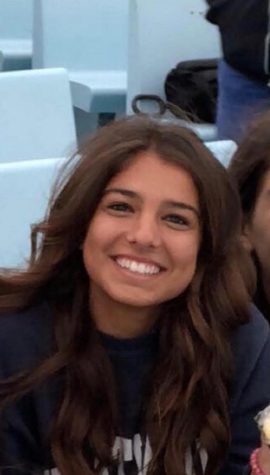“It’s our beginning”: Mr. Barzdukas on Diversity
The Polygon editors sat down with Head of School Audrius Barzdukas to discuss the events of last January, and what the school has done since.
Barzdukas reflected on how he felt during the walk-out and sit-in last January. He said, “You know what? This is gonna sound crazy. I felt proud of our kids. I kinda loved them. Right? Because it mattered to you all and you did something about it. So I was like, ‘Okay! That’s good!’”
Barzdukas listed what he and the school have done to meet Umoja’s demands. He said, “It was very important to the Umoja leaders, that I refer to the video as blackface. I didn’t know that initially. I just didn’t know, you know? So I kept calling it a racist video. That’s not what they wanted.”
He mentioned that he read letters of apology from the girls involved in the video, as requested in the letter, and that Director of Diversity, Equity, and Social Justice Motoko Maegawa has hired the Dean of Diversity at Cornell, Dr. Vijay Pendakur, to come to Poly occasionally, “to research and report on our climate of diversity and inclusion at Poly.”
Barzdukas also addressed the new Ethics and Leadership course for the Freshmen.
“I understand that the class may have not been a homerun out the gate, but it’s a beginning,” he said. “I think it would be hard to create a course, if we had started like last year in February, on ‘race.’ Maybe. I don’t know.” He also said that next year the school is planning to add another course for seniors, mixed in with the existing senior plan class.
He addressed the confusion regarding whether or not this course is a response to Umoja’s demands. “There was a request for a course, but IfEL is our department for above all character, and you can’t just have a course. Courses have to fit somewhere. Any course this year or in the future along these lines has to fit under IfEL, in part of that curriculum, just like in math. You start with addition and subtraction, word problems, algebra, geometry, trig and functions and calculus, we’re trying to create a department with scope and sequence that has to do with good character,” he said. “So for us you have to begin somewhere and so freshman year was the place that IfEL decided to begin and this was how they decided to begin. And is it perfect? No. Will it change ultimately? Yes. But it’s our beginning.”
Poly has also been working to increase the diversity of our school, specifically our faculty. Barzdukas said, “We just had a massive delegation at the People of Color conference, we go to the Diversity hiring fairs, we are always looking.” Since the 2016-17 school year, the percentage of teaching faculty identifying as people of color has gone from 27.2% to 34.3%. The percentage of students identifying as people of color has gone from 31% to 39%.
There have also been two task forces working to improve Poly’s Code of Conduct and disciplinary policies. This summer, Barzdukas compiled a draft of the work of the task forces and sent it to the Board of Trustees. The Board has now created a Diversity, Equity, and Social Justice committee, and the committee is going to look at the draft at its next meeting.
Barzdukas said, “I personally went through some significant growth. Last summer I went to the diversity practitioner’s conference. 104 people at the conference, two school heads, including me. Everyone else was like the Ms. Maegawas of the world. I learned a lot. I learned a lot about my own white male privilege. I learned how much more I have to keep learning.”
We asked Barzdukas how he would approach the same situation now. “I think one of the things that I would have done, is – and I apologized to the students and the faculty and the parents for this – was I didn’t act quickly enough last year, because the time frame of when the video was created – in fact it was 3 years later – I was having questions about how to discipline the kids. One of the lessons that I learned is that when there’s such a hot button when there’s such an emotional issue, you should remove the people who are causing the emotion sooner until you figure out what to do. But other than that I take a look at all those things that we’ve done, where our school is, and it’s sad that it took that video to make all that happen -we should start with all that – but I feel like on the net we’re in a much better place than we were,” he said.

Julia Zrihen ‘20 is the current Editor in Chief of the Polygon. She has been writing for the newspaper since ninth grade. At Poly, she is the president...

























